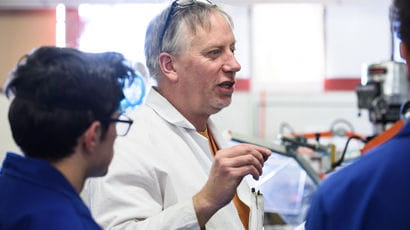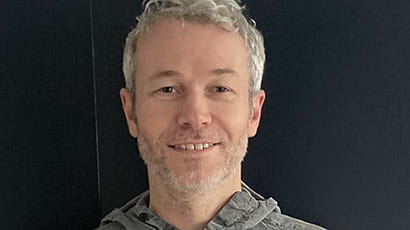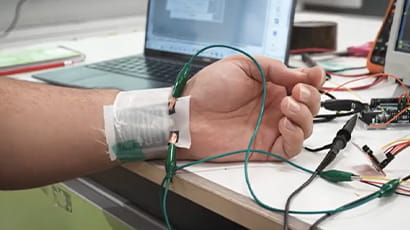Funding secured to develop sustainable health-monitoring e-textiles
See all newsA University of the West of England (UWE Bristol) academic has been awarded £429,000 to further develop wearable sustainable e-textiles to monitor heart patients – a project which has the potential to save the NHS billions of pounds.
The New Investigator Award (NIA) from the Engineers and Physical Sciences Research Council (EPSRC) will enable Senior Research Fellow Dr Shaila Afroj, along with the co-investigator from the Bristol Heart Institute (BHI), to focus on developing sustainable wearable e-textiles which are biodegradable or can be recycled.
With UWE Bristol pioneering this innovative research, the next stage of the project aims to revolutionise the creation of these e-textiles, offering a sustainable and comfortable solution for continuous heart monitoring.
With approximately 37 billion people globally experiencing heart rhythm abnormalities, leading to around 100,000 deaths annually in the UK alone, early diagnosis is critical. Current portable ECG recorders are often bulky, intrusive, and noisy, creating a pressing need for miniaturising and simplifying technology, a gap that wearable e-textiles, such as a t-shirt incorporating specialist technology, could fill.

Dr Shaila Afroj, the principal investigator, said: “I am thrilled to lead this innovative project that aims to revolutionise healthcare through sustainable wearable e-textiles. With support from EPSRC’s New Investigator Award, we are committed to developing multifunctional e-textiles that not only enhance patient experience but also contribute to significant cost savings for the NHS. By fostering collaboration with experts from NHS Bristol Heart Institute, Kymira Ltd, and Levidian, we are poised to make a meaningful impact on healthcare while championing sustainability.”
By innovating the bespoke solution processing of conductive inks and adopting sustainable digital manufacturing process, the project aims to create multifunctional wearable e-textiles as an eco-friendly alternative. This shift could potentially save approximately £2.2 billion in NHS costs annually in the UK alone.
The team will work together with a Patient and Public Involvement (PPI) group consisting of specialist nurses, general practitioners, medical device engineers, and healthy volunteers. The project embraces user-led design to tailor solutions to the specific needs of heart patients. Furthermore, NHS patients will actively participate in the second-stage assessment to validate the effectiveness of the technology.
Wearable e-textiles combine three distinct technologies—textiles, electronics, and materials. However, the project acknowledges the environmental impact of traditional textile materials as well as electronic waste, which are significant contributors to global pollution. Beyond addressing end-of-life processes, the project takes a comprehensive approach by examining the production process and materials from ‘cradle to grave’ to identify and find alternatives for any toxic or environmentally hazardous by-products or processes involved. This holistic approach not only contributes to public health and well-being but also minimises negative environmental impacts.
This project, which marks the first New Investigator Award for UWE Bristol, underscores the commitment of the university to pioneering research and solutions which benefit both individuals and the environment.
Related news
You may also be interested in

Media enquiries
Enquiries related to news releases and press and contacts for the media team.

Find an expert
Media contacts are invited to check out the vast range of subjects where UWE Bristol can offer up expert commentary.









